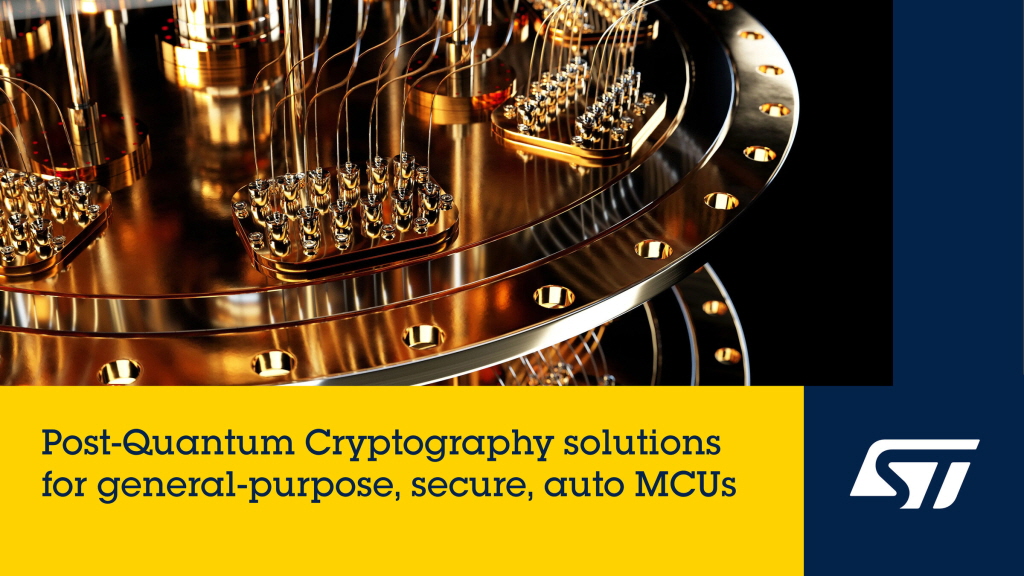세계적인 반도체 회사 ST마이크로일렉트로닉스(STMicroelectronics, 이하 ST)가 임베디드 시스템에서 양자 공격에 대응할 수 있는 포스트 양자 암호화(PQC) 솔루션을 공개했다.
임베디드 시스템에서 양자 공격 대비 포스트 양자 암호화 솔루션 공개
세계적인 반도체 회사 ST마이크로일렉트로닉스(STMicroelectronics, 이하 ST)가 양자 컴퓨터 시대에 강력한 보안을 제공한다.
ST는 임베디드 시스템에서 양자 공격에 대응할 수 있는 포스트 양자 암호화(PQC) 솔루션을 공개했다.
독일 뉘른베르크에서 열리는 임베디드 월드 2025 전시회 및 컨퍼런스에서 발표된 이 솔루션은 범용 및 보안용 마이크로컨트롤러에 통합된다.
ST의 신제품은 하드웨어 암호화 가속기와 관련 소프트웨어 라이브러리를 포함하여, 양자 컴퓨터 시대에 대비한 강력한 보안성을 제공한다.
포스트 양자 암호화는 양자 컴퓨터의 위협에 대비한 새로운 암호화 표준으로, ST는 케칵(Keccak) 알고리즘을 사용해 높은 내성을 가진 해시 알고리즘을 개발했다.
ST는 X-CUBE-PQC 소프트웨어 라이브러리를 통해 STM32 개발자와 SHA-3 하드웨어 가속기가 탑재된 스텔라(Stellar) 자동차용 마이크로컨트롤러에 적합한 솔루션을 제공한다.
또한, 보안용 마이크로컨트롤러를 위한 소프트웨어 라이브러리와 하드웨어 IP를 제공하며, CC(Common Criteria)와 FIPS 140-3을 목표로 ML-KEM, ML-DSA, XMSS/LMS PQC 알고리즘을 지원한다.
ST 보안 플랫폼 부문 상무인 자크 푸르니에(Jacques Fournier)는 “ST는 모든 제품군에 걸쳐 모든 고객과 모든 보안 레벨에 필요한 양자 내성 기능을 제공하는 최초의 기업”이라며, 양자 컴퓨터가 금융, 과학 연구, 지구 관측 등 다양한 분야에서 이점을 제공할 것으로 기대된다고 밝혔다.
ST의 포스트 양자 암호화 자산은 즉시 이용 가능하며, 고객들이 펌웨어 업데이트, 보안 부팅, 인증 메커니즘과 같은 제품의 중요 보안 기능에 양자 내성을 적용할 수 있도록 지원한다.
ST의 자크 푸르니에는 2025년 3월12일, 독일 뉘른베르크에서 열리는 임베디드 월드 전시 포럼에 연사로 참여한다. 방문객들은 행사 기간 동안 ST 부스(4A-148)에서 관련 데모를 확인하고, ST 보안 전문가들과 최신 양자 내성 알고리즘에 대해 논의할 수 있다.
